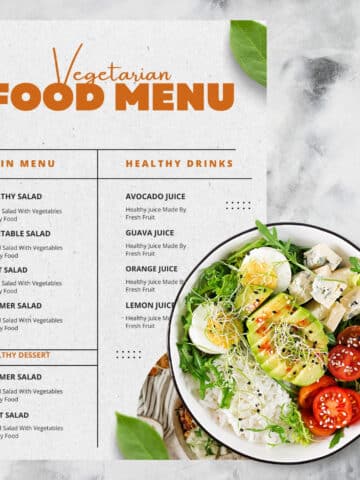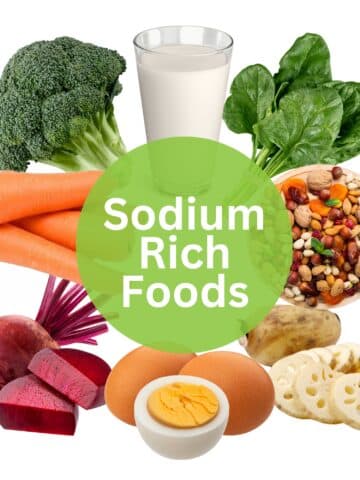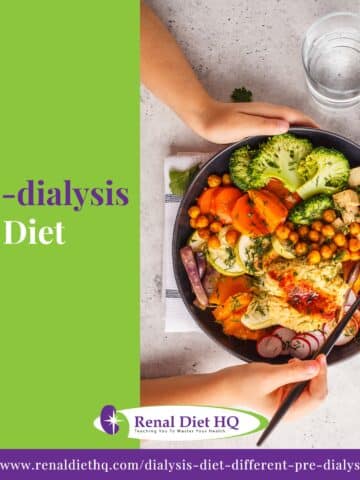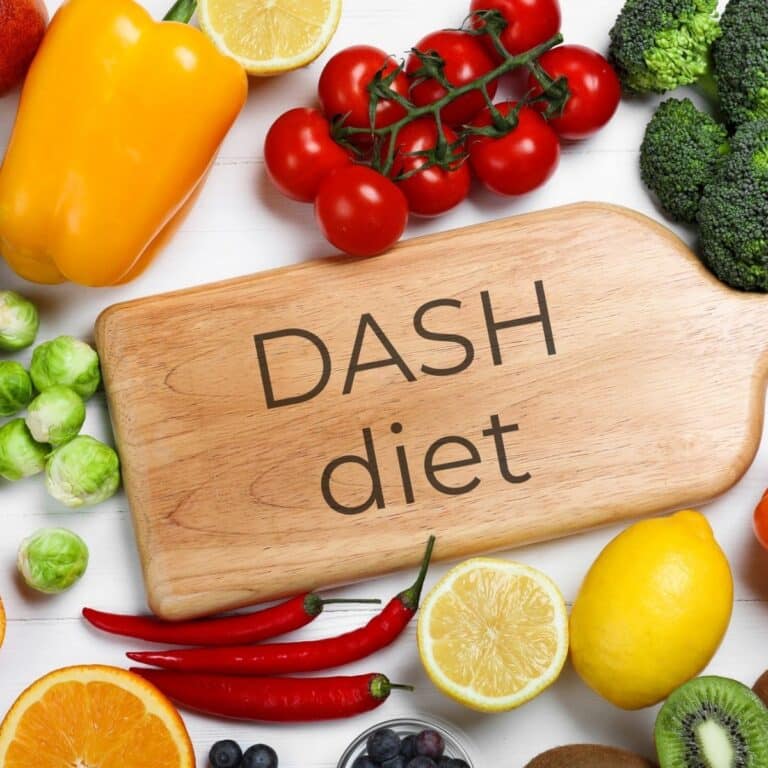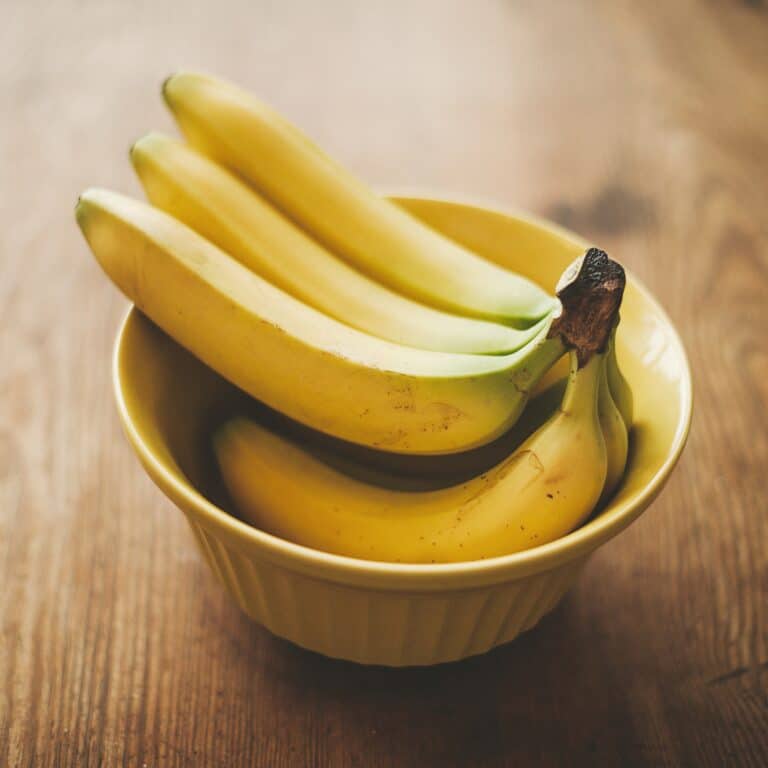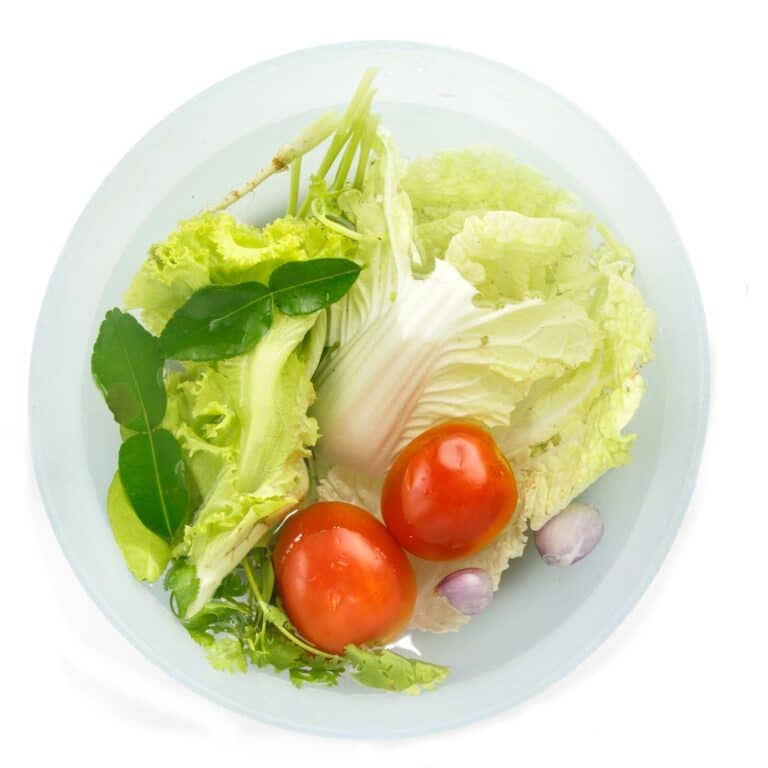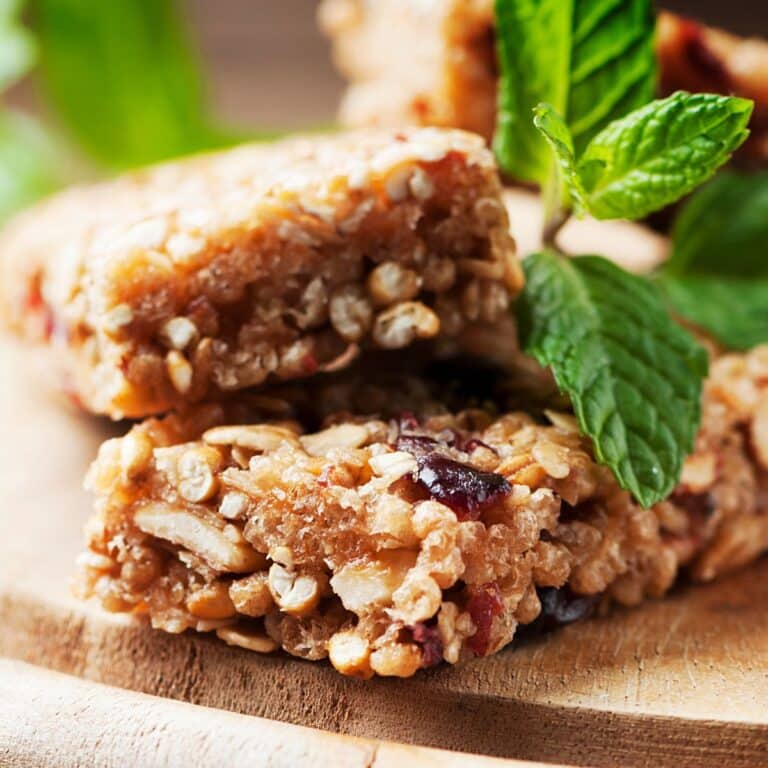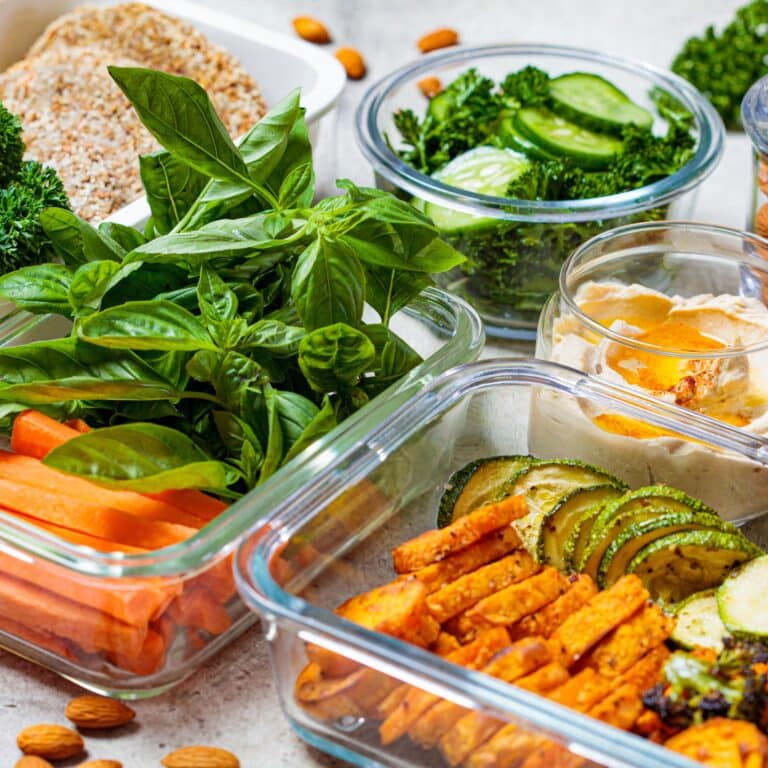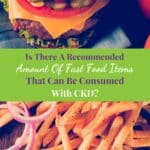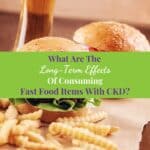Fast Food Items To Avoid With CKD
As the number of people with chronic kidney disease (CKD) continues to grow, navigating healthier choices can be daunting. It is vital for individuals with this condition to understand which fast food items should be avoided in order to maintain their health and well-being.
With this article, we'll explore some of the foods you should avoid if you're living with CKD so that you can make better decisions whether you're ordering Chinese food takeout or eating out at Mexican-style food chains.
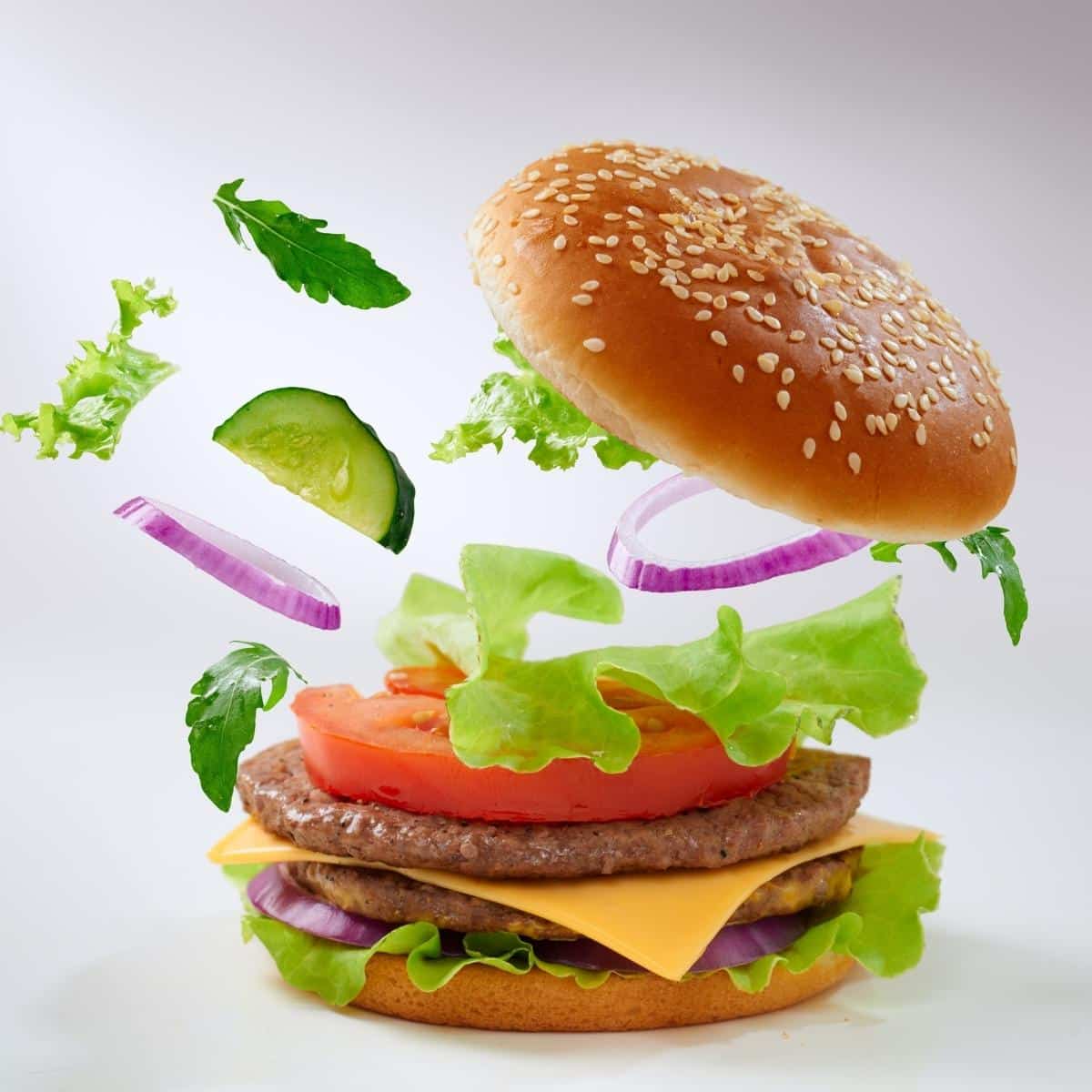
Jump to:
- Food Groups To Limit Or Avoid
- High Sodium Content Foods
- High Potassium Content Foods
- High Phosphorus Content Foods
- Processed Meats And Saturated Fats
- Trans Fats And Sugary Drinks
- Alternatives To Fast Food Items
- Tips For Sticking To A Healthy Renal Diet
- FAQs for Pre-Dialysis Patients and Fast Food
- Be Careful With Fast Food If You Have CKD
Food Groups To Limit Or Avoid
Living with chronic kidney disease (CKD) can be challenging, especially when it comes to planning balanced meals. Eating the wrong foods can put excessive strain on your kidneys and worsen your condition.
To stay healthy while living with CKD, it's important to limit or avoid certain food groups that are high in carbohydrates, fat, and salt.
High-carbohydrate foods like potatoes, white breads, white rice, and pasta should all be avoided. Fried foods such as French fries, chicken nuggets, and fish sticks should also be avoided due to their high trans fat content. Salty snacks like chips and pretzels should likewise be limited due to their high sodium levels.
Processed snacks including candy bars and pastries should also be kept at a minimum. And finally, canned foods and premade meals which contain large amounts of preservatives should not form part of your renal diet either.
By avoiding these food items you’ll feel better overall and take steps towards managing your CKD more effectively.
When following a kidney friendly diet for diabetics or CKD, it's important to be mindful of what fast food items you consume. Fast food can quickly add up in terms of calories and nutrition, making it difficult to maintain your health goals.
Eating too much fast food can have serious effects on our overall health, leading to potential risks like heart disease, diabetes, and high blood pressure.
The quality of the ingredients used for most fast food meals is also often questionable. With processed foods comes an abundance of added sugars and unhealthy fats that don't provide any real nutritional value.
Fortunately, there are still ways to enjoy delicious food without compromising your well-being.
When eating out at a restaurant, opt for dishes made from fresh food produce such as vegetables and lean proteins whenever possible - these will help ensure that you're getting all the essential nutrients needed for optimal kidney function.
Also try incorporating more home cooked food from scratch into your regular renal diet; this way you'll know exactly what kind of ingredients you’re putting into your body each day!
For More Recipes and Ideas --->> Get Your Free Meals and Recipes That Are Perfect for Pre-Dialysis Diets, Pre-Dialysis with Diabetes, or Dialysis Diets.
High Sodium Content Foods
Salt is among the main additives in food, especially in fast food items, and those with Chronic Kidney Disease should be especially mindful of its presence. Generally, it is important for people with this disease to limit their daily sodium intake to less than 2000 milligrams of sodium per day.
Fortunately, it's easy to identify foods high in sodium which can help us avoid them altogether. The following food items are known to have excess sodium content:
- French Fries
- Fried Chicken
- Cheese burgers
- Pizza
Fast food restaurants often use large amounts of salt to season their dishes, making them exceedingly unhealthy for individuals on renal diets due to kidney issues or other health concerns. Make sure you know which fast foods that are okay for kidney disease.
Even seemingly innocuous items like chicken salads may contain excess sodium; dressings are notorious for having copious amounts hidden within their ingredient list.
It's important to recognize that not all forms of sodium come directly from table salt - some common culprits include monosodium glutamate (MSG), baking soda, baking powder, disodium phosphate, and sodium nitrite/nitrate, among others.
Whenever possible, opt for home cooked meals instead of eating out at fast food restaurants as they allow greater control over the amount of sodium being consumed!
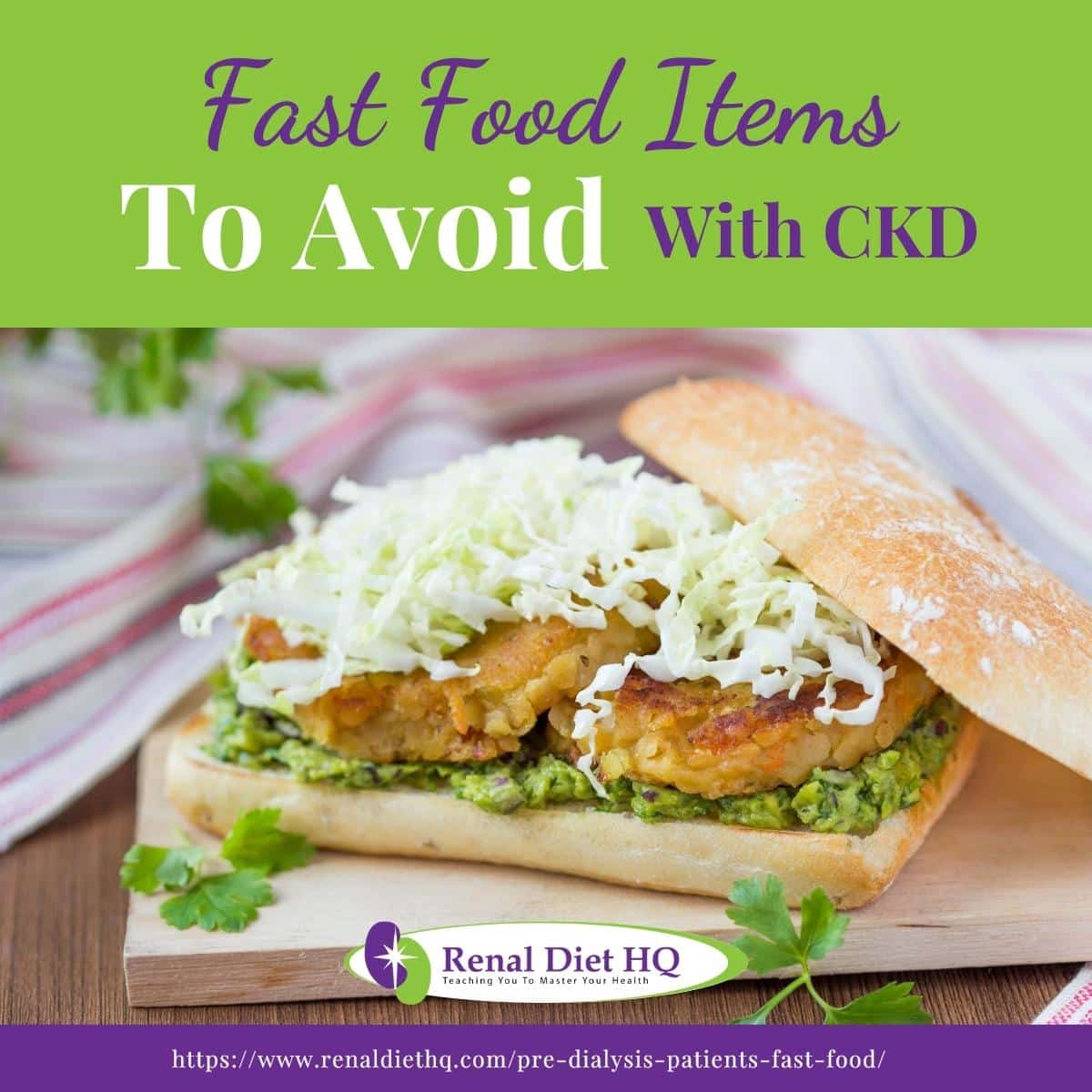
High Potassium Content Foods
It's important to remember that when it comes to a CKD diet, high-potassium foods should be avoided. Kidney disease patients need to follow a low-potassium diet. High levels of potassium can have serious health consequences for those with kidney damage or failure.
So what are some examples of foods that contain high amounts of potassium? Bananas, avocados, broccoli, and potatoes are all considered high in potassium and therefore should be avoided if you're following a kidney-diet-potassium plan.
Other items like oranges, tomato sauce, cantaloupe, spinach, and honeydew melon also fit into this category.
It is best to avoid these types of foods as much as possible while on the low-potassium diet.
On the other hand, there are many low-potassium food options available that can help you stay healthy while managing your condition.
These include
- Most fruits such as apples, pears, and grapes
- Vegetables like cauliflower and lettuce
- Certain dairy products; grains like rice and oats
- Lean meats such as chicken breast
- Fish including cod and whitefish
- Nuts and seeds such as almonds or sunflower seeds
- Eggs
- Legumes such as chickpeas and lentils
- Oils like olive oil or coconut oil; and herbs/spices.
Eating plenty of these nutritious food choices will ensure proper nutrition without compromising your CKD management goals.
By considering both sides of the equation, avoiding certain sources of dietary potassium but getting adequate intake from other nutrient sources–you can maintain good health even with renal impairment.
High Phosphorus Content Foods
Having chronic kidney disease can put a strain on an individual's health and diet. Many people with kidney disease must watch what they eat in order to keep their phosphorus levels within a healthy range.
High-phosphorus foods are particularly dangerous for those with this condition as excess phosphorus intake can lead to serious complications.
Below is a table of some of the most common fast food items that should be avoided due to their high content of phosphorus:
| Food Item | Phosphorus Content | Serving Size |
| Cheeseburger | 535 mg | 1 Burger |
| French Fries | 148 mg | 3 oz |
| Fried Chicken | 226 mg | 3 pieces |
| Fish Sandwich | 465 mg | 1 sandwich |
The majority of these fast food items contain more than half the recommended daily intake of phosphorus for people with kidney disease which is 800 - 1000 mg per day.
It's best for individuals diagnosed with this condition to steer clear from any food item containing more than 500 mg of phosphorus or else risk potential complications from excessive consumption.
Additionally, it’s important to note that fried meats such as the classic hamburgers and extra-crispy chicken often contain higher amounts of phosphorus compared to grilled options (grilled foods for CKD), so you may want to consider avoiding them altogether when dining out.
Dark-colored sodas such as colas should be avoided. These drinks, as well as canned teas, contain high levels of phosphorus, which should be avoided for pre-dialysis patients.
Processed Meats And Saturated Fats
People with chronic kidney disease should avoid processed meats and other high-fat foods to maintain their health. Processed meats, like bacon, sausage, hot dogs, and salami are loaded with saturated fats that can be harmful for your health.
Red meat is also a source of saturated fat and should be avoided as well. This includes beef, pork, lamb, mutton, etc.
Eating too much red meat has been linked to inflammation in the body which could worsen symptoms associated with CKD. Eating recipes like this kidney friendly meatloaf is a good idea!
Fatty cuts of meat should also be avoided because they contain more saturated fat than leaner cuts. Instead, opt for lean proteins such as fish and poultry without skin or breading as well as plant-based proteins like legumes and tofu.
High-fat dairy products such as cheese and butter contain large amounts of cholesterol and should not be consumed by people with CKD either.
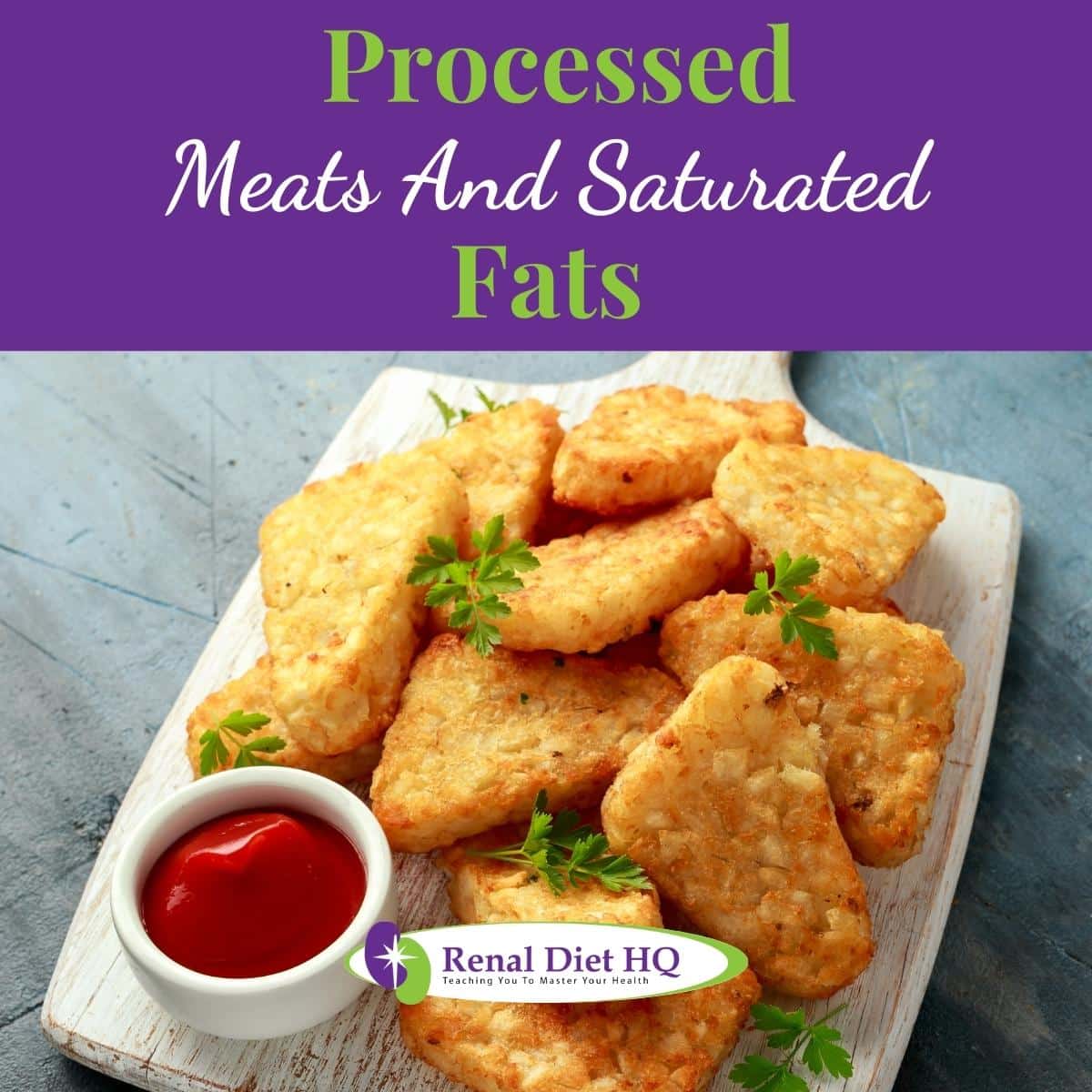
These types of food items will increase your risk for developing heart disease or stroke so it’s best to stay away from them if you have CKD. Instead, opt for healthier versions of these items such as low-fat deli meats like turkey breast or even plant-based proteins instead of fatty red meat sources.
Eating healthy doesn't have to taste bad - there's plenty of delicious alternatives out there! For example: try adding roasted vegetables along with some grilled chicken breasts rather than having a burger patty on its own.
Eating right is essential for maintaining good health for individuals with kidney disease. Making smart choices now when it comes to your diet can help prevent serious complications in the future – so stick to nutrient dense meals filled with fresh veggies & fruits!
Trans Fats And Sugary Drinks
When it comes to fast food items, trans fats and sugary drinks are two of the biggest offenders for those individuals with kidney disease. Trans fats can be found in fried foods like French fries, chicken tenders, onion rings, and most of other fried fast food favorites. These unhealthy fats increase bad cholesterol levels and should therefore be avoided.
Sugary beverages such as cream soda, energy drinks, sports drinks, artificial flavored orange juice or apples juice, and sweet teas contain lots of sugar which can contribute to increased blood sugar levels and an increased risk of diabetes in people with CKD.
Therefore, these drinks should also be avoided or limited when following a kidney-friendly diet plan.
All in all, reducing or eliminating trans fats and sugary drinks from your diet is essential if you have CKD. Additionally, staying away from processed meats higher in saturated fat will help maintain good health while on a renal diet plan designed specifically for managing this condition.
Alternatives To Fast Food Items
As you drive by the local fast food joint, you may be tempted to give in and grab a quick bite. However, those tasty burgers and fries are not ideal for individuals with chronic kidney disease. The good news is that there are plenty of delicious alternatives to fast food items!
Here's a few great options that can satisfy your cravings while keeping your sodium levels low:
Fast Food Substitutes:
- Grilled salmon or chicken served over brown rice and steamed vegetables
- Turkey sandwiches on whole wheat bread (instead of white bread) with green vegetables (such as lettuce), slice of tomato, onions, and avocado slices
- Veggie wraps filled with grilled veggies and hummus
Healthier Fast Food Options:
- Salads topped with grilled protein like wild-caught fish or organic turkey breast -
- Egg white omelets cooked in olive oil with spinach, tomatoes, mushrooms, peppers, etc.
- Baked potatoes loaded with broccoli florets and roasted chickpeas
Kidney-Friendly Options:
- Smoothies for kidney disease made from unsweetened almond milk and frozen fruits such as berries or mangoes
- Low sodium soups packed with lentils, quinoa, beans, kale leaves or other healthy ingredients
- Protein shakes made from plant proteins such as pea protein powder mixed into nut milk
These healthier alternatives are much healthier than traditional fast food meals. Not only do they taste better but they also provide essential nutrients that help keep your body functioning properly.
Plus they are easy to make at home so you don’t have to worry about getting take out every time you need a quick meal.
Additionally many grocery stores offer pre-packaged snacks like nuts, dried fruits, and veggie chips that are perfect for when you’re on the go. So next time you're craving something salty or sweet try one of these CKD friendly foods instead!
Tips For Sticking To A Healthy Renal Diet
It's important to stick to healthy eating habits when managing chronic kidney disease (CKD). Eating right helps control symptoms and improve quality of life. Here are some tips for creating a kidney diet that works with your dietary restrictions:
- First, pay attention to portion sizes. Be mindful of your consumption: eat a slice or two instead of finishing an entire pizza! CKD can cause fluid retention, so be sure not to overeat and not go beyond your recommended daily fluid intake.
- Secondly, look for sodium-free foods and sugar-free drinks. Too much salt or sugar can increase blood pressure levels, leading to further complications from the disease.
- Finally, consult with your doctor and renal or dialysis dietitian about managing your renal diet. You can also discuss with your physician about specific vitamins and minerals you should include in your kidney diet as part of treatment for CKD.
By following these guidelines, you can create an effective meal plan that meets your individual needs while adhering to any dietary restrictions due to CKD.
With careful consideration of what goes into each meal, you can maintain good health through proper nutrition.
FAQs for Pre-Dialysis Patients and Fast Food
It's no secret that fast food items can be tempting, but when it comes to chronic kidney disease, they should be avoided. CKD affects millions of people worldwide and is a serious health condition.
Consuming fast food while living with CKD may have long-term effects on one’s overall health, so understanding the risks associated with such nutrition intake is essential for those who suffer from this condition.
Fast food contains high amounts of sodium, cholesterol, unhealthy fats, sugar and calories which are all detrimental to someone suffering from CKD.
When consumed in large quantities over an extended period of time, these ingredients increase the risk of developing further complications related to CKD including hypertension or diabetes as well as other forms of cardiovascular diseases.
Additionally, eating too much processed meat also increases one’s risk for colorectal cancer.
Furthermore, consuming excessive amounts of fast foods can cause weight gain which is another major concern for people with CKD since obesity has been linked to earlier onset and ckd progression; leading to more severe symptoms and reduced quality of life.
For this reason, it is important for individuals suffering from CKD to make sure that their kidney diet consists mainly of healthy low sodium options such as fruits and fresh vegetables as well as lean proteins like fish and poultry instead of opting for quick meals made up mostly by fried fast food menu options.
In order to maintain good health while living with CKD, limiting consumption of fast food items is key. Eating balanced nutritious meals will not only help reduce the likelihood of developing further complications but will also provide necessary vitamins and minerals needed by your body to stay strong and energized throughout the day!
Through the ages, diets have been prescribed for a variety of ailments and chronic diseases. Chronic kidney disease is no exception; fast food has become an increasingly popular option in today’s society, but those with CKD must take special dietary considerations into account when selecting meals from fast-food restaurants.
To better understand the implications of consuming fast food items with CKD, it is important to consider both short-term and long-term effects on health.
Consuming high sodium levels found in many traditional fast foods can cause immediate discomfort such as bloating or fatigue due to water retention. Over time, extra salt intake can lead to more serious problems like hypertension, heart attack, and stroke.
Additionally, phosphorus additives used in processed meats may worsen CKD symptoms by damaging blood vessels over time and leading to calcium deposits that block arteries throughout the body.
In terms of nutrition specifically related to CKD management, there are certain recommended guidelines that should be followed when choosing kidney-friendly options from a fast food menu.
Fast food CKD diet restrictions emphasize avoiding fried foods which tend to be higher in salt content than other meal choices available at most establishments.
It is also beneficial for individuals with CKD to opt for dishes with fresh fruits and vegetables such as salads as sources of vitamins and minerals rather than opting for fatty side dishes like French fries or onion rings.
Furthermore, minimizing added condiments such as cream based sauces or dressings will help keep overall calorie counts lower while increasing nutrient density in each meal consumed.
When considering whether it is safe for someone with CKD to eat at a fast food restaurant, it is essential that they research nutritional information ahead of time so they can make informed decisions about what types of menu items align best with their dietary needs.
Sticking to low sodium entrees along with providing adequate hydration before and after eating may prove beneficial in keeping people healthy despite living with this condition.
Ultimately, understanding how different foods affect our bodies helps us make healthier decisions regardless of where we choose to dine out!
When it comes to chronic kidney disease, fast food consumption is often a concern.
While there are certainly some items that should be avoided, the recommended amount of these types of foods can vary depending on one's individual condition and health needs.
Here is what you need to know about how much fast food may be consumed with CKD:
1. The key to determining the appropriate amount of fast food for those living with CKD is understanding your own dietary needs and lifestyle habits.
2. It’s important to consult your healthcare provider such as your doctor or renal dietitian before making any drastic changes in your eating patterns as they will be able to provide personalized advice based on their experience working with patients who have similar conditions.
Here are some tips for finding balance when consuming fast foods with CKD:
1. Start by assessing which menu items align best with your current dietary restrictions, as well as what nutrients you could benefit from adding more of into your meals.
2. Make sure to also consider portion size, frequency, and other factors such as salt content when choosing an item off of the menu. Make sure to check how many milligrams of salt is added if these are shown on food labels
Finding a healthy balance between indulging in occasional treats while still meeting all nutritional requirements can be tricky but not impossible! With careful planning and guidance from a healthcare professional, it’s possible to enjoy some fast food without compromising overall health.
Ultimately, knowing what works best for you and sticking to a regular routine will help ensure that you get the most out of every meal – no matter where it came from!
At first glance, it may seem counterintuitive to suggest that fast food can be consumed with CKD. However, there are potential nutritional benefits from incorporating certain types of fast food into a kidney diet.
This is why understanding dietary considerations and supplement intake is so important for individuals living with the disease.
When considering the nutritional benefits of eating specific types of fast food while managing CKD, it’s important to consider what nutrients you need in order to stay healthy.
Fast food items such as grilled chicken sandwiches or salads with low-fat dressing can provide essential vitamins and minerals like iron, magnesium, zinc and more. Are salads good for kidneys?
Additionally, lean proteins found in some fast foods allow people living with CKD to maintain strong bones and muscles despite their medical condition.
In addition to offering necessary nutrients needed for good health, there are other advantages associated with eating fast food when managing CKD:
1. Low Sodium Content: Many fast food chains offer meals made without added salt which can help keep sodium levels at recommended amounts for those diagnosed with kidney disease.
2. Provide Variety: Eating out allows individuals living with CKD to break up the monotony of meal planning by introducing new flavors and textures into their diets.
3. Convenient: Dining out also eliminates the hassle of grocery shopping and meal preparation for someone who may not have access to or feel up to cooking on a regular basis due to fatigue or other symptoms associated with CKD.
The key takeaway here is that making wise decisions about what type of fast food you eat while managing chronic kidney disease can yield positive results if done properly.
With proper management techniques – including monitoring your nutrient intake through supplementation where necessary – it's possible to enjoy fast food on occasion while still keeping your kidney health top priority!
If you are going to eat fast food, some options are better than others. So here is a list of things that are moderately safe to eat on occasion.
1. A small burger with lettuce, mustard, mayonnaise and onion. Try to avoid tomatoes or ketchup.
2. Many fast food places have salad options. Limit your dressing and ask them to put everything on the side as some of the “special” sauces and ingredients have a lot of sodium.
3. Grilled chicken meat options, such as grilled chicken sandwiches.
4. Broiled or grilled fish options, or if fried is the only option, remove the breading. The breading is where the majority of the sodium is.
5. Soft taco with no cheese. Choose sour cream over guacamole and avoid tomatoes.
6. Chinese stir fry using no or low sodium soy sauce. Have steamed brown rice on the side instead of fried. Check out these kidney friendly chinese food options.
7. Sub sandwiches on white bread. Turkey and chicken breast are the best choices, and you should avoid pastrami or pepperoni as they are high in sodium. Avoid cheese, sauces, or pickles to keep sodium and phosphorus levels down.
Be Careful With Fast Food If You Have CKD
Chronic kidney disease can be a difficult condition to manage, and avoiding certain foods is part of the process. Fast food items should generally be avoided when living with CKD because of their high amounts of sodium, saturated fat, sugar, and calories. Use these tips to start following a low sodium kidney diet.
It's important to remember that moderation is key—eating fast food from time to time won't cause any major harm as long as you are mindful about what types of items you choose.
Making healthy choices like opting for more decent options such as grilled meals instead of deep-fried ones, or skipping sugary drinks will help to reduce your risk for further complications due to CKD.
Supplements may also be beneficial if taken correctly, but consulting with your doctor first is always recommended. Eating right isn’t easy, but it’s worth the effort. With diligence and patience, it eventually pays off.
It may take time and practice to learn how to make healthier dietary decisions with CKD, so don’t get discouraged if progress isn’t immediate - every step forward counts!
Remembering all the potential benefits of eating well makes this journey easier; treating yourself well is an act of self-love which will benefit both your physical and mental health in the long run - even if you are living with CKD.


